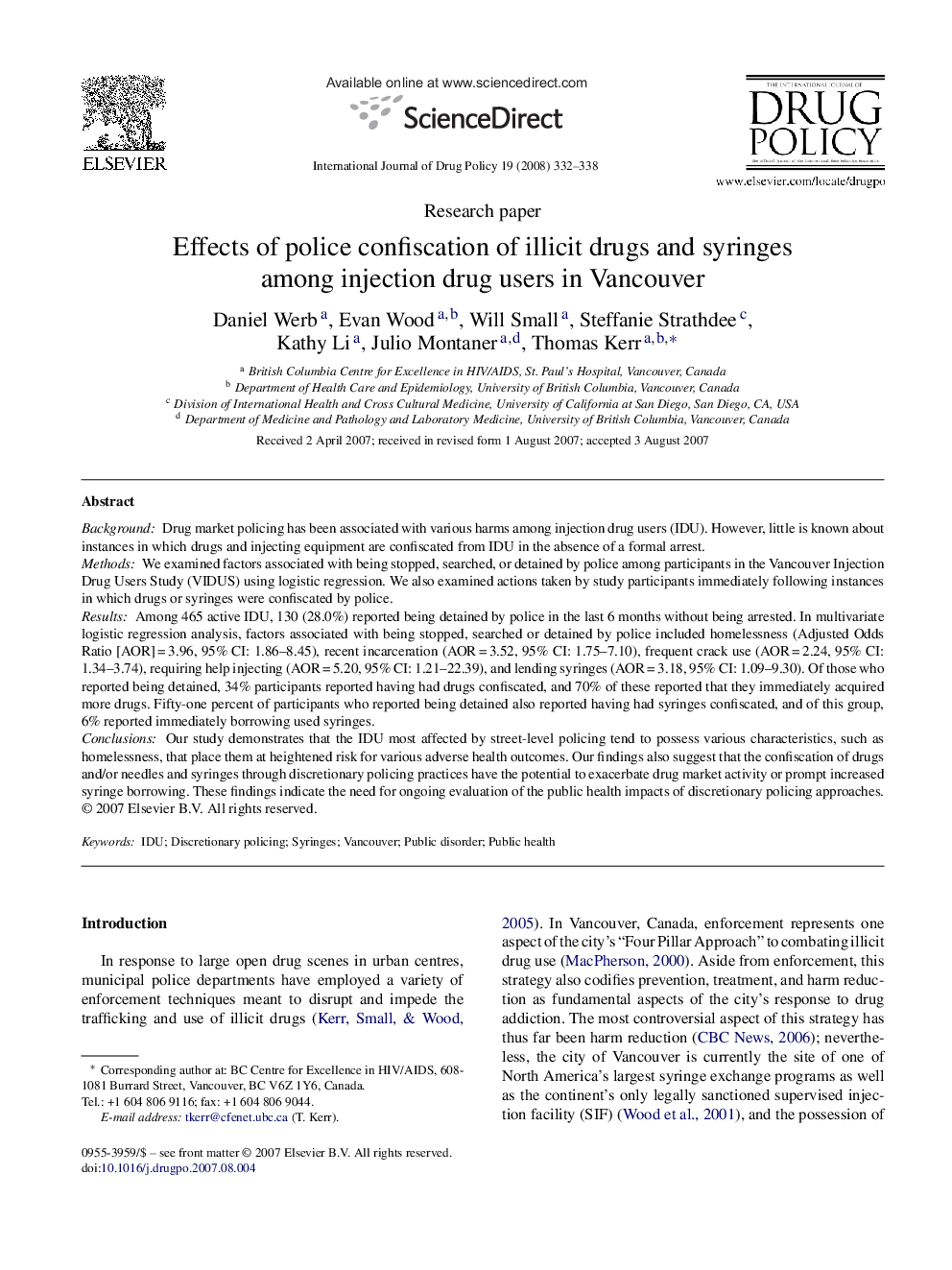| Article ID | Journal | Published Year | Pages | File Type |
|---|---|---|---|---|
| 1075535 | International Journal of Drug Policy | 2008 | 7 Pages |
BackgroundDrug market policing has been associated with various harms among injection drug users (IDU). However, little is known about instances in which drugs and injecting equipment are confiscated from IDU in the absence of a formal arrest.MethodsWe examined factors associated with being stopped, searched, or detained by police among participants in the Vancouver Injection Drug Users Study (VIDUS) using logistic regression. We also examined actions taken by study participants immediately following instances in which drugs or syringes were confiscated by police.ResultsAmong 465 active IDU, 130 (28.0%) reported being detained by police in the last 6 months without being arrested. In multivariate logistic regression analysis, factors associated with being stopped, searched or detained by police included homelessness (Adjusted Odds Ratio [AOR] = 3.96, 95% CI: 1.86–8.45), recent incarceration (AOR = 3.52, 95% CI: 1.75–7.10), frequent crack use (AOR = 2.24, 95% CI: 1.34–3.74), requiring help injecting (AOR = 5.20, 95% CI: 1.21–22.39), and lending syringes (AOR = 3.18, 95% CI: 1.09–9.30). Of those who reported being detained, 34% participants reported having had drugs confiscated, and 70% of these reported that they immediately acquired more drugs. Fifty-one percent of participants who reported being detained also reported having had syringes confiscated, and of this group, 6% reported immediately borrowing used syringes.ConclusionsOur study demonstrates that the IDU most affected by street-level policing tend to possess various characteristics, such as homelessness, that place them at heightened risk for various adverse health outcomes. Our findings also suggest that the confiscation of drugs and/or needles and syringes through discretionary policing practices have the potential to exacerbate drug market activity or prompt increased syringe borrowing. These findings indicate the need for ongoing evaluation of the public health impacts of discretionary policing approaches.
